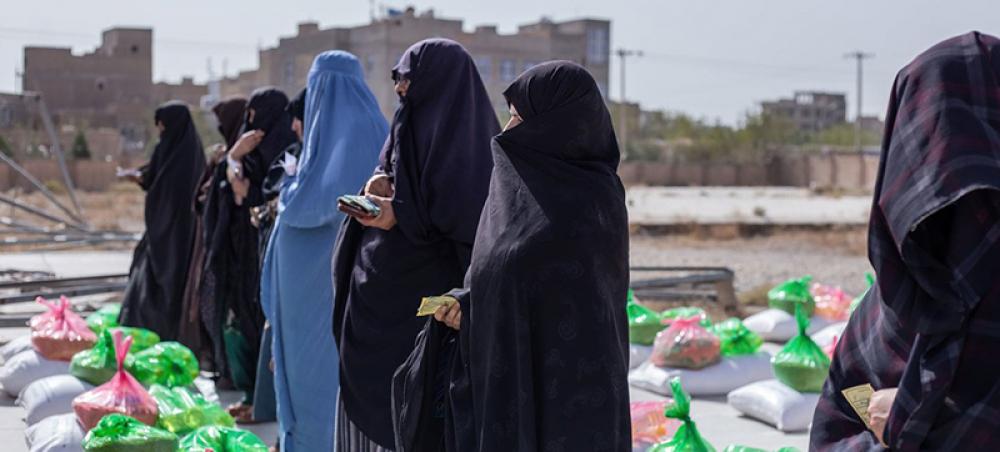Just Earth News | @justearthnews | 26 Apr 2022

Image: UNICEF/Sayed Bidel
New York: Alarmed by the critical humanitarian situation in Afghanistan, independent UN human rights experts called, on Monday, for the United States to end its freeze on Afghanistan’s foreign assets.
The Da Afghanistan Bank has more than $7 billion in blocked reserves that could be used to provide desperately-needed humanitarian relief to tens of millions in the country, said the group of experts.
Renewed blockage of cash
In February, President Biden issued an Executive Order to continue to block the cash and reportedly use part of the funds for purposes within the US, instead of the immediate and longer-term humanitarian needs in Afghanistan.
The rights experts appealed to Washington in a statement, saying that humanitarian exemptions to Afghan sanctions – agreed to by UN Security Council last December – has led to “no significant progress” in financial or commercial aid to Afghanistan, as many foreign banks were concerned about breaching restrictions.
‘Epic’ humanitarian crisis in the country
Gravely concerned about the humanitarian crisis in the country, the experts added that it “puts at serious risk the lives of more than half of the country’s population”.
“While gender-based violence has been a long-standing and severe threat to women and girls, it has been exacerbated by the measures imposed by the US, together with the drought and widening gender-based discrimination adopted by the de facto authorities”, the statement continued.
Echoing the words of the UN Secretary-General, who recently called it an ‘epic humanitarian crisis on the verge of a development catastrophe’, the experts urged States to re-assess any adopted unilateral measure and lift all obstacles in providing the necessary financial and humanitarian aid.
In January, the UN launched its largest-ever humanitarian appeal for a single country, requiring more than $5 billion this year to help the Afghan people.
Emergency food insecurity
According to international assessments, Afghanistan has now the highest number of people in emergency food insecurity in the world, with more than 23 million in need of assistance, and approximately 95 per cent of the population having insufficient food consumption.
Of particular concern is the vulnerability of more than four million internally displaced, including people belonging to minorities and over 3.5 million seeking refuge in neighbouring countries.
No progress in financial and commercial flows
Furthermore, the experts highlighted that since the December adoption of Security Council resolution 2651 and the establishment of humanitarian exemptions to existing sanctions, there has been no significant progress in financial or commercial flows for development and humanitarian purposes to Afghanistan by States or international financial institutions.
The uncertainty caused by banks’ zero-risk policies and over-compliance with sanctions has left humanitarian actors facing serious operational challenges.
According to the experts, the US Executive Order may “exacerbate the climate of uncertainty among relevant actors...resulting in over-zealous compliance with sanctions,” thus preventing Afghans from “access to basic humanitarian goods”.
Call to re-assess
The UN experts called on the US to seriously consider the growing humanitarian crisis in Afghanistan and re-assess its decision to block the Da Afghanistan Bank’s foreign assets, recalling that States have an obligation under international human rights law to guarantee that activity under their jurisdiction does not result in human rights violations.
They concluded by calling US authorities to take all appropriate action to reverse the unilateral measure and contribute to international efforts in addressing the growing humanitarian crisis in the country.
Special Rapporteurs and independent experts are appointed by the Geneva-based UN Human Rights Council to examine and report back on a specific human rights theme or a country situation. They are independent from any government and are not paid for their work.